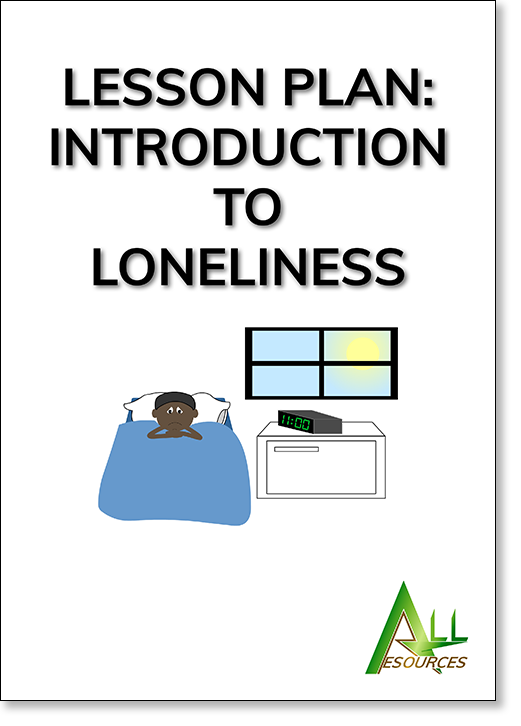Loneliness and Young People

Introduction to Loneliness
An introduction to loneliness and the way it affects our physical and mental health.
- Age range: 12 years and upwards
- Category: Lesson plan
- First published: 2022
- Pages: 15
- Duration: 55 mins – 1 hour
Hard copy: £10.99 add to basket
The teenage years are a challenging time, with many changes happening both physically and emotionally. It is also a time when new friendships are forged, and while it can be an exciting time for some young people, it can also be a time of loneliness and anxiety for others.
The Link Between Loneliness and Social Media
Loneliness affects everyone at some time or another, but teenage loneliness can be crippling. Young people live their lives through social media and studies have found a link between heavy social media usage and loneliness. Instead of bringing people together, social media can lead to separation and isolation. Rather than meeting face to face, friends will meet virtually through a screen. When you add to this the constant need to check what others are doing online, it is a recipe for loneliness.
Fear of Missing Out
Another aspect of social media and loneliness is FOMO — the fear of missing out. Many people, particularly the young, are constantly online, checking posts and status updates from friends and family. When they see others having a good time, enjoying themselves, it magnifies their own unhappiness and makes them feel lonelier. They may think that everyone is living a great life while they are feeling sad and lonely. However, much of what is posted online is highly exaggerated.
What to Do When You Are Lonely
Teenage loneliness is more common than most people think. Almost 70% of young people experience loneliness at some point in their life. They may feel that nobody understands them, and the feeling of being alone can be overwhelming.
To deal with loneliness, young people must share that they are feeling alone, however hard they find it. They can confide in a trusted adult or teacher, and this will help them open up about their inner feelings.
They can also try out new activities or hobbies. Not only will this take their mind off their problems, but they will meet like-minded people. They should realise that they have the power to make changes in their lives, and by taking a few small steps, they will start to move forward and create connections.


